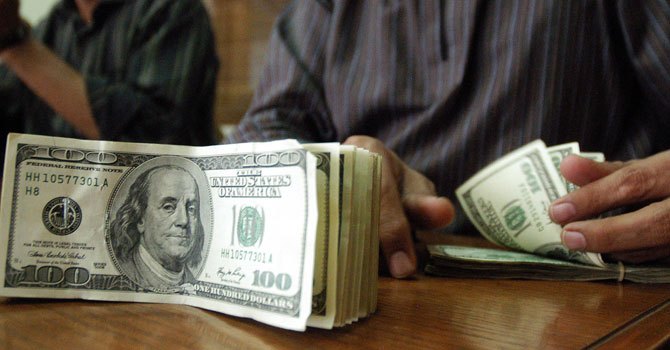
(Photo courtesy of Ministry of Supply )
The government is considering an increase in citizens’ cash allowance for rations, which currently stands at about EGP 15 per month, in expectation of a rise in product prices due to inflation, according to Minister of Supply and Internal Trade Khaled Hanafy.
He added that this measure would be taken to ensure that the value of the cash allowance can match the expected rise in the price of basic commodities such as oil, sugar and rice.
In a statement to Daily News Egypt, Hanafy said his ministry has finished developing a proposal that will compensate citizens for the critical rise in inflation rates. The cabinet will develop the proposal soon, but he added that “the priority now is to provide a diversity of more than 20 food items and non-food items under various classifications to the [ration] cards, which will benefit nearly 70 million citizens.”
Hanafy did not specify how much the monetary value of the ration card would increase from its current amount of approximately EGP 15, stating: “We are waiting to see the results of the inflation… but the most important thing is that the citizen’s in-kind share for goods does not decrease from his rations.”
“We are working to increase the list of goods on the ration cards, to provide 30 instead of 20 within a few months,” said Hanafy. “The development of supply stores and offices to number over 25,000 nationwide outlets will provide 75,000 jobs.”
According to the Central Agency for Public Mobilization and Statistics (CAPMAS), inflation rose to 10.6% last July, compared to 8.2% last June. This was influenced by the government’s decision to raise fuel prices by 78%, “which reflected on all walks of life”. The government slashed these subsidies in order to control the budget deficit and its internal and external debts.
According to the new rationing system, each citizen receives EGP 15 of rations or subsidies on basic commodities on his ration card (and EGP 7 extra during the month of Ramadan). Rations are determined by inflation rates and are adjusted based on fluctuation in prices, so as to ensure that the citizen is able to afford buying staple goods each month.
The new system has been influenced by last July’s events, which saw a governmental shift from in-kind to cash support, sparking fears among citizens that their ration of approximately EGP 15 would not be enough to cover their basic needs. Adel Abdul Rahman, a government employee working at a water facility, said: “In two years with EGP 15 in rations I’ll only be able to buy a kilo of sugar,” and urged that the government make sure there are enough quantities of sugar, oil and rice for every citizen and then give citizens a cash allowance to buy meat or poultry.
According to the old rations system, each citizen was able to obtain approximately 2 kilograms of sugar, 2 kilograms of rice, 1.5 kilograms of oil and a share of tea. According to government subsidised prices, citizens were able to buy a 1 kilogram of sugar for EGP 1.5, 1 kilogram of rice for EGP 1.25, and a bottle of oil for EGP 3.
But the new rationing system gave each citizen approximately EGP 15 of rations while the government also freed commodity prices, wherein the citizen would buy 1 kilogram of sugar for EGP 4, 1 kilogram of rice for EGP 4.9, and a bottle oil for EGP 7.
According to the Ministry of Supply website, the new list of goods includes “meat, poultry, vegetables, flour, and industrial products like detergent from both the public and private sectors”.
According to Hanafy, his ministry is working on the establishment of an SMS service for citizens in order for them to submit inquiries and receive responses regarding the status of their shares and rations for goods each month, including what food commodities may or may not be replaced in the coming months.
He added that the new rations and supply system provides EGP 7bn a year, out of a total of EGP 13bn, in subsidies for supply commodities. He said that the smart cards and smart card machines that are being used at certain supply outlets are connected to computers in the ministry, which prevents any manipulation of the rations.
Commenting on the apparent imbalances following the administration of the new rations system, Hanafy said: “In terms of the product shortages, we have told factories to work at full capacity in order to fulfill all the required quotas. I expect that citizens’ shares for groceries will be organised through the end of September.”







